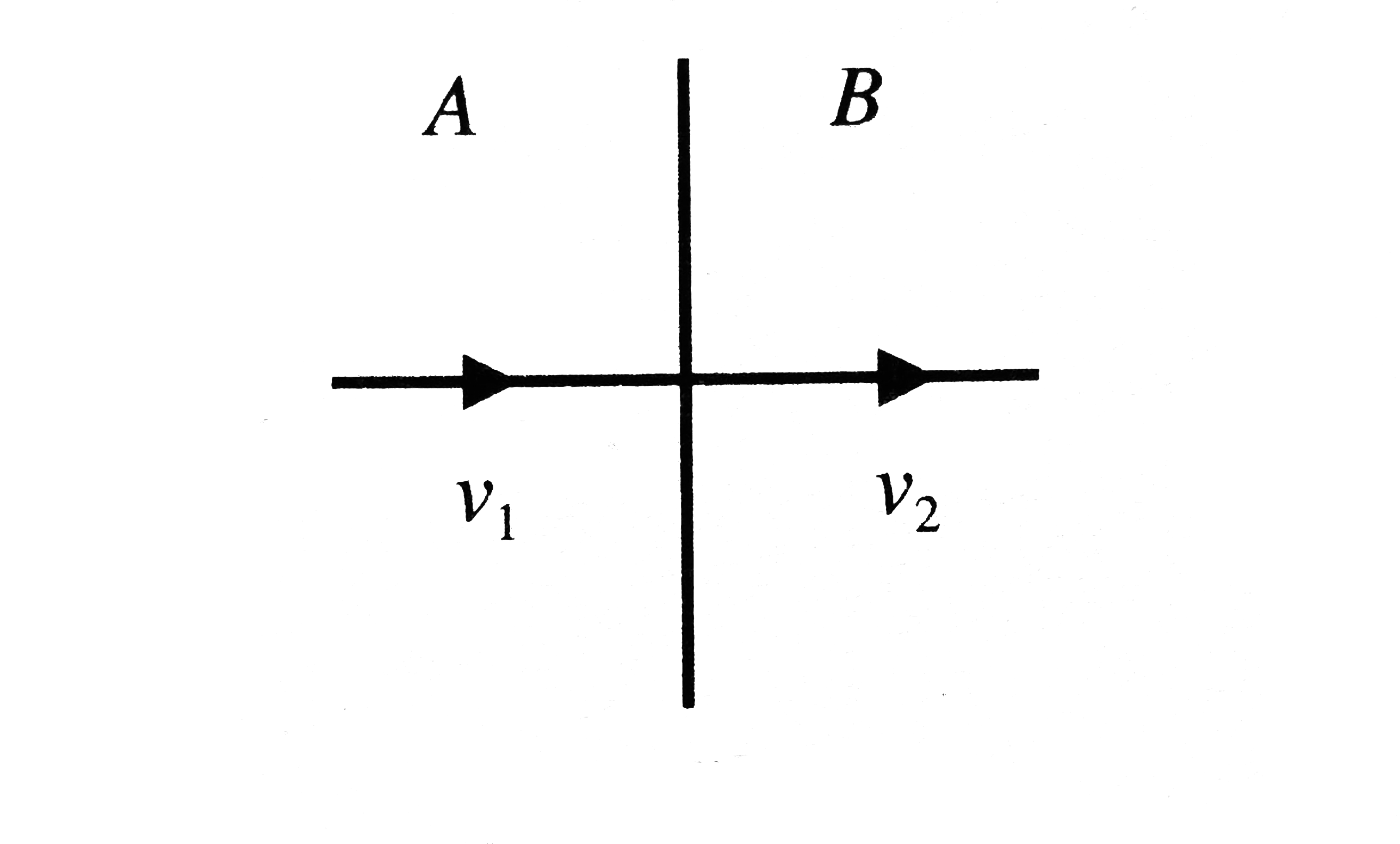A sound waves passes from a medium A to a medium B. The velocity of sound in B is greater than in A. Assume that there is no absorption or reflection at the boundary . As the wave moves across the boundary :
A
the frequency of sound will not change
B
the wavelength will increase
C
the wavelength will decrease
D
the intensity of sound will not change
Video Solution
Text Solution
The correct Answer is:A, B, D
v2>v1 frequency does not change on changing the medium.
λ=vf
As velocity increases , so wavelength increase.
As there is no absorption or reflection of wave , so intensity remain same.

|
Topper's Solved these Questions
- SUPERPOSITION AND STANDING WAVESBOOK - CENGAGE PHYSICSCHAPTER - SUPERPOSITION AND STANDING WAVESEXERCISE - Assertion - Reasoning
6 Videos
- SUPERPOSITION AND STANDING WAVESBOOK - CENGAGE PHYSICSCHAPTER - SUPERPOSITION AND STANDING WAVESEXERCISE - Comprehension
55 Videos
- SUPERPOSITION AND STANDING WAVESBOOK - CENGAGE PHYSICSCHAPTER - SUPERPOSITION AND STANDING WAVESEXERCISE - Single Correct
144 Videos
- SOUND WAVES AND DOPPLER EFFECTBOOK - CENGAGE PHYSICSCHAPTER - SOUND WAVES AND DOPPLER EFFECTEXERCISE - Integer
16 Videos
- THERMODYNAMICSBOOK - CENGAGE PHYSICSCHAPTER - THERMODYNAMICSEXERCISE - 24
1 Videos
Similar Questions
Knowledge Check
A sound wave passes from a medium A to a medium B. The velocity of sound B is greater than that in A. Assume that there is no absorption or reflection at the boundary. As the wave moves across the boundary
Athe frequency of sound will not changeBthe wavelength will increaseCthe wavelength will decreaseDthe intensity of sound will not changeThe velocity of sound waves in a medium depends on
AFrequency of the source,BPhysical properties of the mediumCAmplitude of the source,DNone of these.For sound waves to propagate in a medium it should have the property of
AElasticityBInertiaCBoth inertia and elasticityDEither inertia or elasticity
Which characteristic of the medium determines the velocity of sound waves?
View SolutionA plance sound waves passes from medium 1 into medium2. The speed of sound in medium 1 is 200m/s and in medium 2 is 100m/s. The ratio of amplitude of the transmitted waves to that of incident waves is
View SolutionWhen a sound wave goes from one medium to another, the quantity X remains unchanged. X is
View SolutionWhen a sound wave goes from one medium to another, the quantity X remains unchanged. X is
View SolutionIf sound waves reflected from the denser medium, then there is
View Solution
